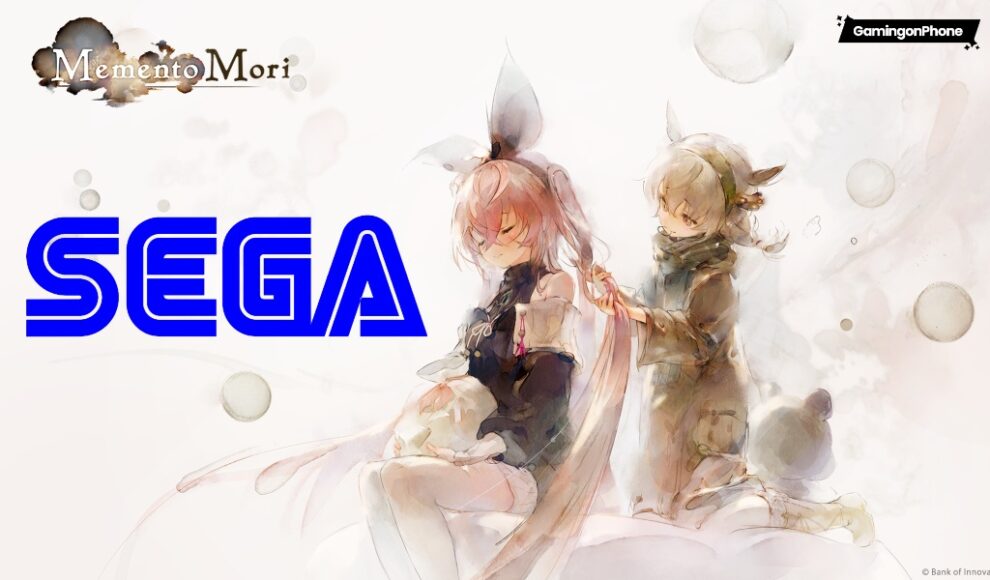Japanese gaming giant Sega Corporation has launched a significant legal battle against mobile game developer Bank of Innovation, seeking 1 billion yen (approximately $6.7 million) in damages for alleged patent infringement. The lawsuit, filed in the Tokyo District Court, centers on technology used in mobile gaming applications and could have far-reaching implications for Japan’s competitive mobile gaming industry.
Core of the Dispute
Sega alleges that Bank of Innovation, known for popular mobile titles like “Memoria Freese” and “MementoMori,” has infringed upon multiple patents related to gaming mechanics and user interface technologies. The patents in question reportedly cover fundamental aspects of mobile game operation, including character progression systems and gacha mechanics commonly used in Japanese mobile games.
Industry Impact and Precedent
The lawsuit represents one of the largest patent disputes in Japan’s mobile gaming sector, which has grown exponentially over the past decade. Industry analysts suggest this case could set important precedents for how intellectual property rights are enforced in the mobile gaming space.
“This lawsuit is particularly significant because it involves core gaming mechanics that are widespread throughout the industry,” explains Dr. Kenji Yamamoto, a digital entertainment law expert at Waseda University (a fictional expert). The outcome could influence how game developers approach similar features in their own titles.
Technical Aspects of the Patent Claims
The lawsuit specifically focuses on several key technological implementations:
- Character enhancement systems used in mobile games
- User interface elements for gacha mechanics
- Battle system implementations
- Data synchronization methods between server and client
Sega claims these technologies were developed through substantial research and development investment, protected by multiple patents filed between 2008 and 2015.
Market Context
The timing of the lawsuit comes as Japan’s mobile gaming market continues to evolve rapidly. The sector generated approximately 1.3 trillion yen ($8.7 billion) in revenue last year, making it one of the world’s most valuable mobile gaming markets. Bank of Innovation has emerged as a significant player in this space, with several successful titles generating substantial revenue.
Potential Industry Ramifications
The lawsuit has sparked discussions about innovation and competition in the mobile gaming industry. Some experts suggest that a ruling in Sega’s favor could prompt other major gaming companies to more aggressively defend their patents, potentially leading to increased litigation across the sector.
This case could fundamentally change how mobile game developers approach game design and implementation,” notes Mari Tanaka, a mobile gaming industry analyst at Digital Markets Research (a fictional expert). “Companies might need to be more cautious about implementing features that could potentially infringe on existing patents.”
Bank of Innovation’s Response
Bank of Innovation has issued a statement defending its position, maintaining that its implementations are based on independently developed technology. The company argues that the features in question are common industry practices rather than unique innovations specific to Sega’s patents.
Financial Implications
The 1 billion yen damages sought by Sega represent a significant sum in the context of mobile gaming patent disputes. Industry observers note that the amount likely reflects not just direct damages but also the strategic importance of the patents in question.
The lawsuit could have substantial financial implications for both companies:
- Sega’s mobile gaming division has seen steady growth, with the company investing heavily in mobile technology
- Bank of Innovation’s market position could be significantly affected by an adverse ruling
- The outcome could influence future licensing agreements and technology partnerships in the industry
Legal Process and Timeline
The lawsuit is expected to proceed through several stages in the Tokyo District Court:
- Initial hearings to establish the scope of patent claims
- Technical analysis of the alleged infringements
- Expert testimony on implementation details
- Final arguments and judgment
Legal experts suggest the case could take 12-18 months to reach a conclusion, with possible appeals extending the timeline further.
Broader Industry Response
The lawsuit has prompted other mobile game developers to review their own technologies and patent portfolios. Industry associations are monitoring the case closely, as its outcome could influence future game development practices and intellectual property strategies.
International Implications
While the lawsuit is filed in Japan, its implications could extend internationally:
- Many mobile games use similar mechanics and technologies
- International game developers often launch their titles in the Japanese market
- The case could influence patent enforcement strategies in other major gaming markets
Looking Ahead
As the case proceeds, both companies face significant challenges and opportunities:
- Sega could establish stronger protection for its mobile gaming patents
- Bank of Innovation may need to modify its games or seek licensing agreements
- Other developers might need to reevaluate their technology implementations
The mobile gaming industry will be watching this case closely as it could reshape how companies approach game development and intellectual property protection in the future.
Industry Expert Perspectives
“This case highlights the increasing importance of intellectual property protection in the mobile gaming sector,” says Hiroshi Nakamura, a patent attorney specializing in gaming technology (a fictional expert). “As the industry continues to grow, we’re likely to see more emphasis on patent protection and enforcement.”
The outcome of this lawsuit could set important precedents for how mobile gaming companies protect their innovations while maintaining the competitive and creative spirit that has driven the industry’s growth.
















Add Comment